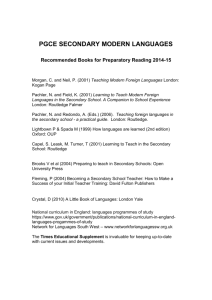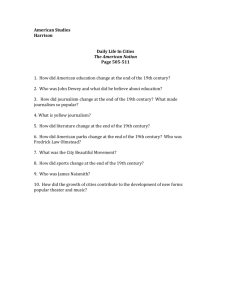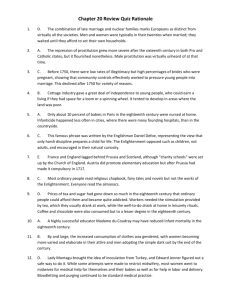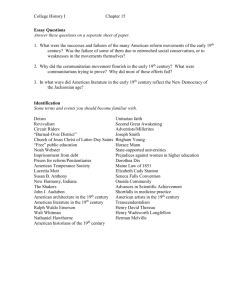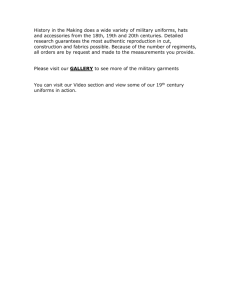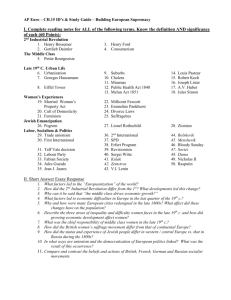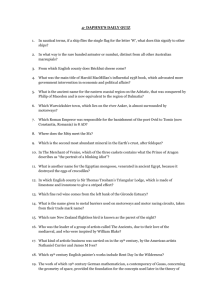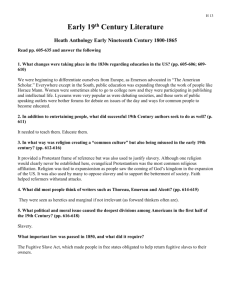MT Lecture 1 Development of Standard French
advertisement
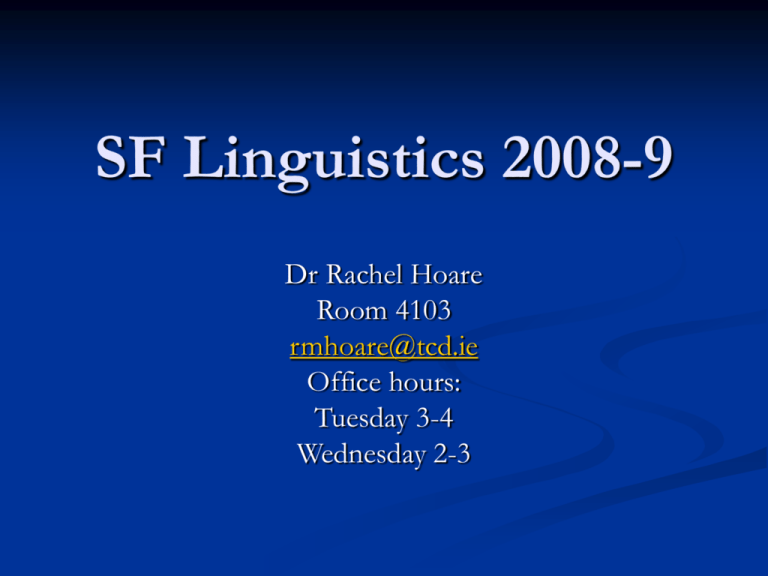
SF Linguistics 2008-9 Dr Rachel Hoare Room 4103 rmhoare@tcd.ie Office hours: Tuesday 3-4 Wednesday 2-3 French grammar and grammatical analysis Lecture 1 What is grammar? Dr Rachel Hoare Course objective The main objective of this course is to give a deeper understanding of the French language as it exists today in its social context. The course looks at and evaluates attempts to control the language. The course describes different types of French which may be encountered but which differ in some way from Standard French Recommended reading Ager D. (1990) Sociolinguistics and Contemporary French, Cambridge University Press Ball R. (1997) The French-Speaking World, London and New York, Routledge Lodge R. A. (1993) French: From Dialect to Standard, London and New York, Routledge Lodge R., Armstrong N, Ellis Y, Shelton J. (1997) Exploring the French Language, London, Arnold Offord M. (1990) Varieties of Contemporary French, Basingstoke, Macmillan Sanders C. (ed) (1995) French Today: Language in its Social Context, Cambridge, Cambridge University Press Walter, H. (1994) French Inside Out: The worldwide development of the French Language in the Past, present and future. Routledge. Concepts French is a many-faceted social instrument which may be delicately modified to suit the multitude of situations in which it is used on a daily basis. The French language, like any other language in current use, is constantly changing and responding to the needs and demands of its users. Content History of Standard French Emergence of standard languages attempts to control the language Linguistic diversity within France: Geographical origin Age Sex Socioeconomic status Register The History of Standard French The emergence of standard languages: Selection Codification Elaboration of function Acceptance The development of standard French Ninth century: French emerged as independent language distinct from Latin Old French period (10th to 13th centuries) Middle French period (14th and 15th centuries) Sixteenth century: French promoted at expense of Latin 1539 Ordonnance of Villers-Cotterets Seventeenth century Seventeenth century: control and norms: 1635: Académie Française founded by Cardinal Richelieu Claude Favre de Vaugelas: 1647: Remarques sur la langue françoise Le bon usage Language of the masses ‘degenerate patois’ 1694: publication of first edition of Dictionnaire de l’Académie Eighteenth century Eighteenth century: 1789: Revolution overthrew Ancien Régime Revolutionary agenda: linguistic uniformity, centralisation, standardisation 1790: L’abbé Grégoire: ‘Sur la nécessité et les moyens d’anéantir les patois et d’universaliser l’usage de la langue françoise’ Nineteenth century Nineteenth century: At beginning of this century, in 24 of country’s 89 départements, more than half the people did not speak French French remained virtually a foreign language to large proportion of country’s population until end of 19th century. Eighteenth century 1790: Population of 26 million: 3 million fluent speakers of French 6 million no knowledge of French 6 million ‘some knowledge’ 1794: decree issued proclaiming unilingualism in all parts of France Prohibited use of regional languages Factors influencing the diffusion of the French language (19th century) Literary influences: Chateaubriand (1768-1848) introduced poetic, scientific and popular terms into novels. Victor Hugo (1802-85) innovations in literary language. Factors influencing the diffusion of the French language (19th century) Educational influences: The Jules Ferry laws set of French laws which established first free education in 1881. proposed by the (Republican) Minister of Public Instruction Jules Ferry a crucial step in the grounding of the Third Republic (1871-1940) Primary education in French was obligatory under these laws from 1886 and promoted French language and culture. Factors influencing the diffusion of the French language (19th century) Military conscription Improvement of communication networks Influence of Paris with strong centralizing tendencies. Very important years in formation of French identity and promotion of French language. Twentieth century In 20th century still forbidden to use any language other than French in schools. Regional languages = forbidden They were living in France, and the language of France = French Situation changed in 1951 with passing of Loi Deixonne Allowed for teaching of some of the regional languages and dialects of France (Breton, Basque, Catalan, Occitan). One hour a week on a voluntary basis. Twentieth century More sympathetic attitude (?) Mitterrand (1981) ‘C’est blesser un peuple au plus profond de lui-même que de l’atteindre dans sa culture et sa langue. Nous proclamons le droit à la différence’ Jack Lang (1982) ‘Le gouvernement souhaite que toutes les cultures locales et régionales puissent aujourd’hui jouir d’un véritable droit à l’expression’
